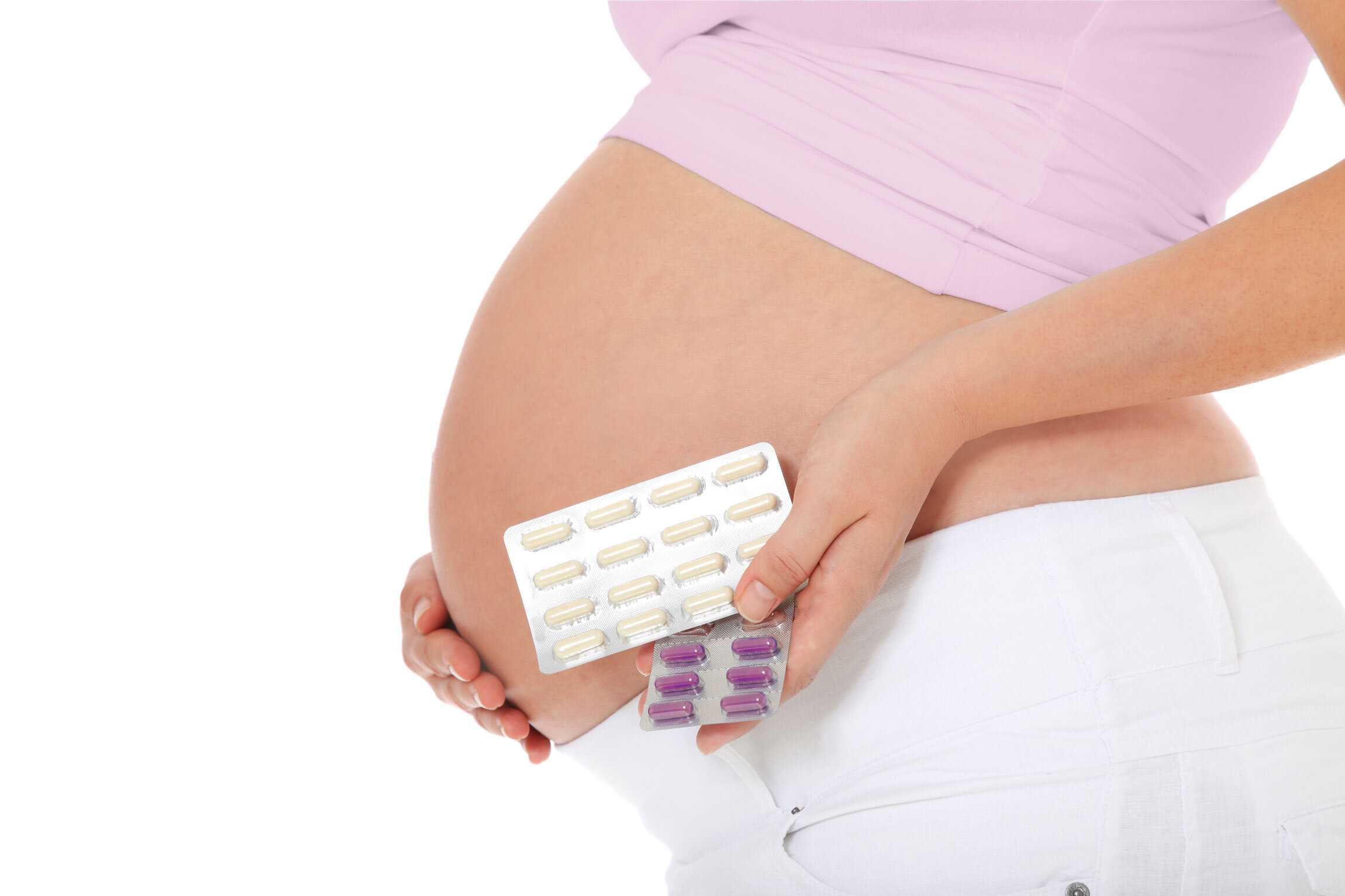During pregnancy, the body needs more nutrients than usual. One of the nutrients that are in high demand during this time is folic acid. Folic acid (also known as folate when present in its natural form) is a B vitamin that is needed for cell growth and cell division. Folic acid deficiency in pregnancy can adversely affect the baby’s development, including the development of the central nervous system.
What are the symptoms of folic acid deficiency in pregnancy? What are the consequences for the baby? When should a pregnant woman start to take folic acid? What can happen if folic acid deficiency remains untreated?
Table of content
Folic acid deficiency symptoms in pregnancy
Folic acid deficiency in pregnancy: causes and risk factors
What are the effects of folic acid deficiency in pregnancy?
How to prevent folic acid deficiency during pregnancy
Deficiency of folic acid in pregnancy: key takeaways
Folic acid deficiency symptoms in pregnancy
What symptoms indicate folic acid deficiency in pregnancy? Possible indicators that the mother’s folic acid levels are low include:
- irritability and depression
- difficulty concentrating
- nausea
- weight loss
- diarrhoea
If you discover that you suffer from one or several of these symptoms, you should seek advice from your GP or midwife. A suspected deficiency of folic acid in pregnancy should always be checked to prevent negative repercussions on the baby.
Good to know: Women who breastfeed also need more folic acid. That’s why you should also be conscious about your breastfeeding diet and watch out for early signs of a possible folic acid deficiency.

Folic acid deficiency in pregnancy: causes and risk factors
Pregnancy increases the risk of developing folic acid deficiency because the body’s increased need of vitamin B9 cannot be covered through the daily dietary intake. However, there are other factors that can further increase the risk of developing a deficiency.
These factors include:
- unbalanced diet
- malnutrition
- use of sunbeds, as UV rays are suspected to break down folic acid
- unplanned pregnancy and delayed folic-acid supplementation
The good news is that folic acid deficiency in pregnancy can be treated, especially if it is diagnosed at an early stage. If the deficiency is due to poor nutrition, it is usually enough to temporarily supplement folic acid and make changes to your daily diet.
What are the effects of folic acid deficiency in pregnancy?
Sufficient folic acid intake is especially important during the first few weeks of pregnancy. That’s because the B vitamin is needed for a healthy development of the brain, nerve cells and spinal cord. The mother’s body also needs folic acid to produce red blood cells.
Many women who intend to become pregnant wonder: “What happens if I don't take folic acid during pregnancy?” So, what are the effects of a folic acid deficiency in pregnancy on the unborn baby?
Folic acid deficiency can have different consequences for mother and baby. If the mother’s folic acid levels are low, the baby has an increased risk of developing:
- neural tube defects (such as spina bifida)
- other types of brain or spinal impairment
- heart defects
- urinary tract defects
- cleft lip and palate
For the mother, a deficiency of folic acid in pregnancy primarily leads to the symptoms described above, which can weigh down on her physical wellbeing. Additionally, folic acid deficiency can lead to anaemia, changes in the mucous membranes and digestive disorders.
When should a pregnant woman start taking folic acid? Folic acid deficiency can already become a problem in the early stages of pregnancy. To prevent this risk, women who want to get pregnant should start taking folic acid supplements no later than four weeks before the beginning of the pregnancy.

How to prevent folic acid deficiency during pregnancy
To ensure sufficient folic acid intake, mums-to-be first need to know how much folic acid in pregnancy is actually needed. During pregnancy, the body needs twice as much folic acid as usual. So, how can this increased need be covered?
Here are a few helpful tips to prevent a deficiency of folic acid in pregnancy.
- Dietary supplements: The general recommendation is that pregnant women should supplement 400 micrograms of folic acid every day throughout the first three months of pregnancy. Women who intend to get pregnant should already start supplementing folic acid four weeks before they’re actually pregnant.
- Balanced diet: The easiest way to prevent deficiency of folic acid in pregnancy is to eat a healthy, balanced diet that includes lots of wholemeal products and plenty of fresh fruit and vegetables.
- Foods that are rich in folic acid: Egg yolk, soft cheese, quark, tuna, green leafy vegetables, pulses, nuts, wholemeal bread, corn salad, strawberries, tomatoes, peppers, sour cherries and whole milk are excellent sources of folic acid. Liver also contains a lot of folic acid, but is not suitable for the first trimester because it is very high in vitamin A.
- Fortified foods: Some processed foods are fortified with folic acid. So it’s advisable to check the labels when buying breakfast cereals, dairy products and soft drinks.
Good to know: Just because a certain food is high in folic acid, this doesn’t mean that your body will absorb all of it. However, there are different things you can do to increase your body’s folic-acid absorption. This includes:
- Careful cooking: Folic acid is vulnerable to cooking. If possible, eat foods as fresh as possible or cook them carefully to preserve vitamins and nutrients.
- Using leftover vegetable juice: Whenever you cook vegetables, try to use the leftover cooking juices for other dishes or make a proper veggie stock or gravy from them.
- Using fortified table salt: It’s best to use iodised table salt for cooking which should ideally also be fortified with fluoride and folic acid. This way you can not only reduce your risk of developing a folic acid deficiency in pregnancy, but it also lowers your risk for low iodine in pregnancy.
Deficiency of folic acid in pregnancy: key takeaways
- Folic acid is a water-soluble B vitamin that is needed for cell growth and cell division.
- Women who want to get pregnant should start supplementing folic acid no later than four weeks before the beginning of the pregnancy.
- Supplementing folic acid is also recommended during the first twelve weeks of pregnancy. The recommended dose is 400 micrograms per day.
- Folic acid deficiency in pregnancy can adversely affect foetal development. For instance, it can lead to neural tube defects or a cleft lip or palate.
- In order to prevent folic acid deficiency, future mums should eat a balanced diet that includes many foods that are high in folic acid.
References
- Rundum - Schwangerschaft und Geburt - BZgA Shop
- Kinderwunsch und Schwangerschaft: Folsäure oft falsch dosiert oder zu spät zugeführt: www.frauenaerzte-im-netz.de
- Folsäure-Ratgeber | Mangel erkennen & vorbeugen Donn-Apotheke St. Michaelisdonn
- Schwanger werden? - Aber nicht ohne Folsäure! - Faltblatt des BfR (bund.de)
- Wie viel Folsäure brauchen Schwangere? | Apotheken Umschau (apotheken-umschau.de)
- Jod, Folsäure und Schwangerschaft - Ratschläge für Ärzte (jodmangel.de)
















